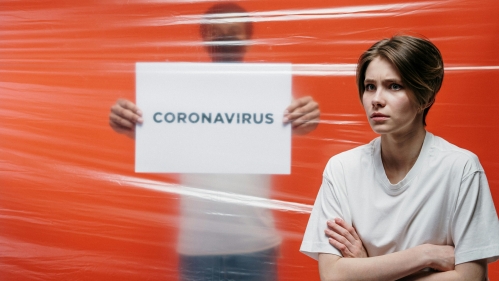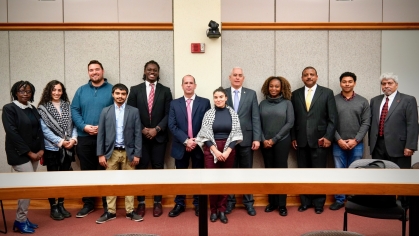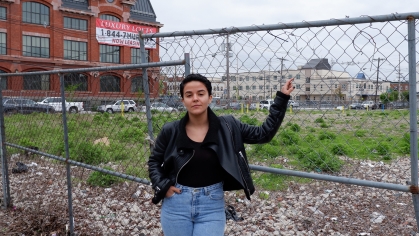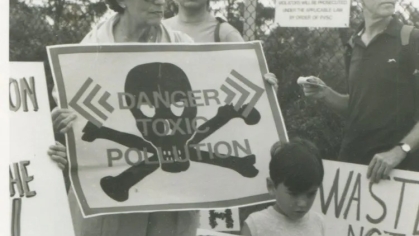Bizarre COVID-19 Pandemic Beliefs Linked to Stress, but Purpose, Hope, and Support Could be Antidote, Say Researchers

As Americans look back on the fourth anniversary of the COVID-19 pandemic, new research from Rutgers University–Newark sheds light on why some people succumb to conspiracy theories and bogus beliefs and others don't.
Studies by psychologists Kent Harber and Valeria Vila, recently published in the “Journal of Social and Political Psychology,'' found that people with high levels of emotional distress, even distress unrelated to COVID, were more prone to embrace supernatural explanations for the pandemic, conspiracy theories, and false remedies.
Highly distressed people were also more likely to deny COVID-related facts, such as the respiratory risk that COVID presented or the benefits of basic hygiene. However, psychological resources such as hope, purpose, and self-worth had an inoculating effect. People with more of these resources were resistant to bogus beliefs and were less likely to deny COVID facts.
“One finding that really stood out for us was how high the correlations were between feeling distressed in your day-to-day life, at your job or at school, and extreme beliefs, like COVID could be cured by inhaling from a blow dryer or that COVID was a sign of the end times,’’ said Harber, a professor at Rutgers-Newark. “These correlations were so high that bogus beliefs might serve as a diagnostic of severe distress.''
He added, “The more distressed people were, the less likely they were to accept facts. And the more resources they had, the more likely to accept facts.''
In the midst of the 2020 pandemic, Harber and Vila wanted to know why wildly erroneous beliefs, unfounded suspicions and rejection of scientific information and public health advice were so rampant.
“Why were some people denying legitimate facts that could help them cope with this deadly pandemic?” they asked.
To find answers, they conducted two studies involving 750 adults across the United States. The participants reported on their daily life stress, chronic stress, depression, and their COVID-specific stress. They also rated their resources such as self-esteem, social support, hope, optimism and sense of purpose.
However, the central measure was a COVID Beliefs Survey, which included conspiracy theories and bogus beliefs, and also factual statements based on science and public health guidelines. For example, participants were asked if COVID was a hoax designed to control the stock market or serve as divine punishment for a sinful world. They were also surveyed on whether COVID could be cured by teas and essential oils. Factual statements included the efficacy of handwashing and the prospect that the pandemic could continue for many months.
Harber and Vila found that different types of stress produced different outcomes. People with general-life distress, such as relationship tensions, financial worries and depression more strongly endorsed false beliefs and denied facts. They were also more likely to engage in survivalist activities, such as purchasing firearms, planning escape routes, and banding together with like-minded people. People with COVID-specific anxieties were more likely to accept facts and follow CDC recommendations but still clung to bogus beliefs.
What explains the embracing of unfounded beliefs, and the rejection of valid and potentially life-saving information? The pandemic presented the “perfect storm” of circumstances that can give rise to conspiracy theories and false beliefs, according to Harber.
It was an extreme threat which, especially at first, was clouded in confusion and mystery. “COVID was highly contagious, it could have long-lasting effects, and in some cases, it was fatal,’’ he said. "And it seemed to come out of the blue. Experts didn’t know its cause, whether it was natural or human made, and the medical establishment and even the federal government initially issued contradictory advice."
"Some of the recommended remedies, such as social distancing and school and work closures, deprived people of the very resources that would help them cope, such as community, friendships, efficacy, and purpose,'' Harber said.
Fantastical beliefs, conspiracies, and bogus cures become attractive when people feel afraid, confused, and powerless, said Harber.
“As humans, we have a basic ‘fight or flight’ response to threats. You can’t hide from or beat up a virus. However, you can direct your fears against unpopular shadowy figures and groups who are supposedly conspiring in some nefarious ways,’' he explained.
Since the threat of another pandemic or catastrophe always looms, it’s crucial that psychological coping mechanisms be considered in crisis situations, contends Harber.
“Having policies and practices that allow people to maintain their resources should be part of the coordinated response,” says Harber. “You have to address the psyche, not only the body.''
According to Haber, a powerful way to do that is through providing avenues for emotional disclosure. “When people freely and safely disclose disturbing things, they are physically healthier. Disclosure boosts the immune system and makes people more disease resistant. Second, we found that people who disclose distress, even just in writing, see the world more judiciously. They are more willing to forgive others, less likely to blame victims and, for some people, more likely to accept uncomfortable facts,'' he said.
Ignoring the psychological costs of disasters, such as COVID, might be dire, Harber believes.
“We combat pandemics collectively, through mass vaccinations, mask wearing, social distancing and other such behaviors. The individual person who believes that COVID is a hoax, or that vaccines are useless or dangerous, or that COVID can be cured by rubbing crystals, will not get vaccinated or cooperate in other ways. If you multiply this social defection by entire populations the virus spreads,'' he said. "Also, if we don’t trust in our social institutions and in science, but trade in corrosive conspiracies and seek out scapegoats, our civil society is at risk."
"On the other hand, the more we have faith in ourselves and in each other, the less we need the short-term comforts of bogus beliefs and factual denial, and the more we can work together reasonably. That’s why building and shoring up resources are so important,'' he added.


